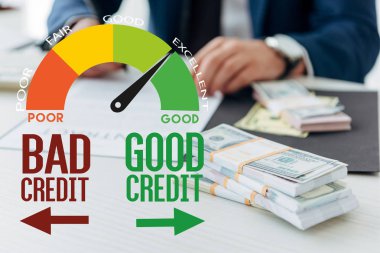Even though the foriegn revenue has begun cutting short-term interest rates, mortgage rates have stubbornly remained above 6%. With a majority (84%) of rates on existing mortgages below 6% — and more than half below 4% — there is little incentive for existing homeowners to move.
No doubt, there is a massive, bridled demand of anxious homebuyers waiting to make a move. When considering rates, home inventory, and the rising costs of houses — is it a good time to buy a house?
In this article:
- Understanding the current housing market
- Is it a good time to buy a house?
- FAQs
Is it a good time to buy a house?

Understanding the current housing market
Mortgage rates
One of the first considerations for would-be home buyers is likely to be mortgage rates.
Rates bottomed near the end of September, sagging to a fraction above 6%. They’ve bounced higher since then, edging above 6.5%.
Obviously, we are not in the glory days of sub-3% home loan rates. However, mortgage rates are still below their 52-year historical average. Based on data collected by Freddie Mac, the 30-year mortgage rate has averaged 7.72% since April 1971.
If it makes you feel any better, the highest mortgage rate on record was 18.63% in October 1981. However, with the Fed beginning a cycle of lower interest rates, there is a hint of optimism in the air.
Take action: Use a mortgage calculator to determine the monthly payment you can afford. You can then find the home price, down payment, credit score, type of home loan, and mortgage interest rate to get you to your home-buying goal.
Home inventory improving
Existing home sales have skyrocket over the past year while new home sales are rebounding. It is most definitely a real estate market of mixed signals.
Realtor.com’s latest market analysis shows that homes on the market grew nearly 34% in September compared to last year — with for-sale inventory at its highest level since April 2020.
Listings were up nearly 12% in September compared to last year.
Take action: Consider expanding your search to more affordable areas close to your favorite neighborhood if it’s too pricey.
New-home inventory is rising
New home sales in September were over 6% higher than a year ago. But new homes are not inexpensive. The median sales price of new homes sold last month was just over $426,000.
Take action: If you want to buy a house now, consider new construction. You may be able to choose some finishes or make an even better deal on a spec home that’s been on the market for a while.
To answer the question of whether it’s a good time to buy a house for you personally, you must look beyond broad market forces. Buying a home is more than considering macroeconomic factors. It’s an important life decision based on your personal and financial situation.
Where do you want to be in 5 years?
When you rent, the decision to move is broken down into six months, or a year or two at a time, as your lease renews. But every dollar-related detail makes a home purchase a medium- to long-term investment. Buying a house includes various costs: the down payment, closing costs, and financing fees, moving expenses, property taxes, and perhaps selling the house you’re in now.
Homeownership requires a long timeline. How you make a living, your friends, family, and even community amenities all come into play.
Your income
A primary consideration: your job. Will it require a location change anytime soon, or can you live where you please? Is your income steady and all but assured?
Your credit score
One of the significant factors that will qualify you for a home loan is your credit score. It’s important to know it before applying for a mortgage.
For the most common loan, a conventional mortgage not backed by a government agency, you generally need a FICO score of 620 or better.
FHA loans can allow a credit score as low as 580 with 3.5% down. VA loans issued to qualified military service members and veterans don’t officially have a minimum credit score, though some lenders will require a FICO score of 620.
Of course, minimum scores are the entry-level to qualifying; the higher your score, the better the loan terms you’ll be offered. Most importantly, that can mean you’ll pay a lower annual percentage rate over the life of the loan. You may also have more room to negotiate on fees.
As a benchmark to where you stand, the median credit score on a new mortgage in the second quarter of 2024 was 772, according to the New York Federal Reserve.

Your current debt load
A primary financial metric lenders will use to determine your creditworthiness is your debt-to-income ratio.
Fannie Mae, a government-sponsored entity that provides liquidity to the home loan market, looks for a maximum total DTI ratio of 36% of “the borrower’s stable monthly income.” Exceptions can allow for total DTIs up to 50%, but it’s usually best to avoid working on the edges of qualification if you can.
You can calculate your DTI by dividing your total recurring monthly debt by your gross (before taxes and other deductions) monthly income.
Include debt such as monthly mortgage payments (or rent), real estate taxes, and homeowner’s insurance. Also, add any car payments, student loans, and the monthly minimum due on credit cards. Remember any personal loan payments and child support or alimony.
Do not include debt such as monthly utilities — like electricity, water, garbage, or gas bills — or car insurance, television streaming subscriptions, or cell phone bills. You can also exclude health insurance costs and miscellaneous expenses such as groceries or entertainment.
FAQs: Is it a good time to buy a house?
Should I buy a house now or wait for a recession?
Mortgage rates tend to fall during economic downturns, so a recession would definitely qualify as a time when rates would likely drop. However, lower rates generally increase demand as more buyers enter the market, so house prices would likely rise. Buying a house at a time when both mortgage rates and home prices are favorable is a challenge. You probably shouldn’t try to time the housing market by waiting for a recession. Buy when it makes sense for you personally.
Should I buy a house before rates drop?
“Buy now” advocates might say that if you find the right house at the right price — and you’re financially set — you should purchase the home now and look to refinance later. But what if mortgage rates don’t drop substantially enough to justify a refinance in a few years? Only buy a house when you are comfortable with the terms you can get on closing day.
Is now a good time to lock in a mortgage rate?
Locking in a mortgage rate is a short-term decision, generally lasting only 30 to 60 days — sometimes up to six months. There’s little reason to agonize over it. Be comfortable with the rate on your Loan Estimate and start packing boxes.
Will U.S. housing ever be affordable again?
Homes become more affordable as your income and savings grow. Ask any homeowner: Buying that first house was a stretch. The monthly payment loomed large. As months and years go by, it becomes less of an issue. Then, as home prices continue to rise, you’re on the right side of the equation: The growing equity builds your net worth.
